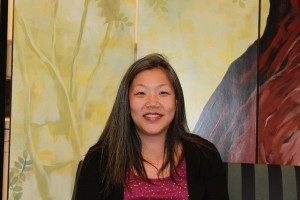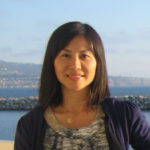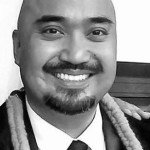Asian American Journal of Psychology | December 2016 Issue
Feature Article & Table of Contents
FEATURE ARTICLE:
Annual Review of Asian American Psychology, 2015
by Lisa Kiang, Charissa Cheah, Virginia Huynh, Yijie Wang, and Hirozaku Yoshikawa
AAPA would like to congratulate the authors of “Annual Review of Asian American Psychology, 2015,” which has been chosen as the Feature Article of the June 2016 issue. Below is a brief biography of the lead author, Dr. Lisa Kiang, and some reflections on this research experience. We hope that the readers of AAJP will find this Feature and the rest of the issue’s articles to be informative and of benefit to their work. The Feature Article may be downloaded for free here, and the December 2016 issue’s Table of Contents is at the end of this post.
Brief Biography of Dr. Lisa Kiang
Lisa Kiang is an Associate Professor in the Department of Psychology at Wake Forest University. She earned her Ph.D. in Developmental Psychology from the University of Denver and received her B.S. in Psychology from the University of Maryland, College Park. Her primary research interests are in the intersections of self and identity, family and social relationships, and culture, with a focus on adolescents from immigrant and ethnic minority backgrounds. Major themes include relational or contextual influences on identity formation, and culturally protective factors in promoting development and well-being.
Reflections from the Lead Author
I have sort of a love-hate relationship with technology, and my emotions certainly fluctuated to the extremes while collaborating on this paper. To start, though, I am deeply grateful to have had the opportunity to take on the important and enormous challenge of reviewing the outstanding research on Asian Americans published in 2015. It was rewarding and inspiring to see the quality of cutting-edge research focusing on this distinctive population. And in terms of sheer quantity, coordinating the coding, summary, review, and synthesis of hundreds upon hundreds of articles is no small feat and would never have been possible without the help from my small, but mighty, research lab and from my co-authors from the SRCD Asian Caucus. Indeed, one of the biggest tasks in working on this project was figuring out how to manage the process of coding articles for inclusion in the review. After consulting with one of my university’s reference librarians early on, I decided that using a combination of EbscoHost folders and Zotero would be one of the best ways to filter through abstracts and identify the final set of articles that met the criteria for inclusion—and this is where the “hate” comes in. These software programs and I had some words during the coding process, some pretty nasty words. And there were tears, mostly on my part. Some fists were even raised. Yet, in the end, glitches were resolved, inconsistencies were addressed, and no severe damage was done. After completing this project, Zotero and I decided we would take a little bit of break from each other, spend some time apart, but I think we’ll still be friends. The “love” aspect of my relationship with technology can be illustrated by the fact that much of the preparation and writing of this paper was handled internationally. I had the great fortune to teach in Vienna, Austria during the Spring of 2016 (more detailed teaching escapades can be found at http://www.s-r-a.org/announcements/blog/2016-05-17-teaching-semester-vienna-connecting-cultural-experiences-class-concept). Through technology, I was able to very efficiently and effectively communicate with my coding team and co-authors, whether it be via e-mails, electronic servers, shared folders, or online communication platforms. These days, it no longer seems remarkable to hold a meeting when attendees are distributed across multiple states and two or more continents, but it is the beauty and power of technology that makes such collaboration feasible and fun.
AAJP VOLUME 7, ISSUE 4 | TABLE OF CONTENTS
[Articles available on APA PsycNET]
FEATURE ARTICLE: Annual Review of Asian American Psychology, 2015 [Free download of article]
Lisa Kiang, Charissa Cheah, Virginia Huynh, Yijie Wang, and Hirozaku Yoshikawa
Asian American Men’s Internalization of Western Media Appearance Ideals, Social Comparison, and Acculturative Stress
Brian TaeHyuk Keum
Parent-Child Closeness and Acculturation in Predicting Racial Preference in Mate Selection among Asian Americans
Quyen T. Sklar, Jenny H. Pak, and Stacy Eltiti
Big 5 Personality and Subjective Well-Being in Asian Americans: Testing Optimism and Pessimism as Mediators
P. Priscilla Lui, David Rollock, Edward C. Chang, Frederick F. T. Leong, and Byron L. Zamboanga
Does Endorsement of the Model Minority Myth Relate to Anti-Asian Sentiments among White College Students? The Role of a Color-blind Racial Attitude
Sarah J. Parks and Hyung Chol Yoo
Associations among Perceived Provider Cultural Sensitivity, Trust in Provider, and Treatment Adherence among Predominantly Low-Income Asian American Patients
Shuchang Kang, Carolyn M. Tucker, Guillermo M. Wippold, Michael Marsiske, and Paige H. Wegener
Read about the last issue of AAJP: https://beta.aapaonline.org/2016/11/04/aajp-vol-7-no-4/
For more information on AAJP: http://aapaonline.org/publications/asian-american-journal-of-psychology/.
Contact: Bryan S. K. Kim, Ph.D., Editor, Asian American Journal of Psychology, bryankim@hawaii.edu












